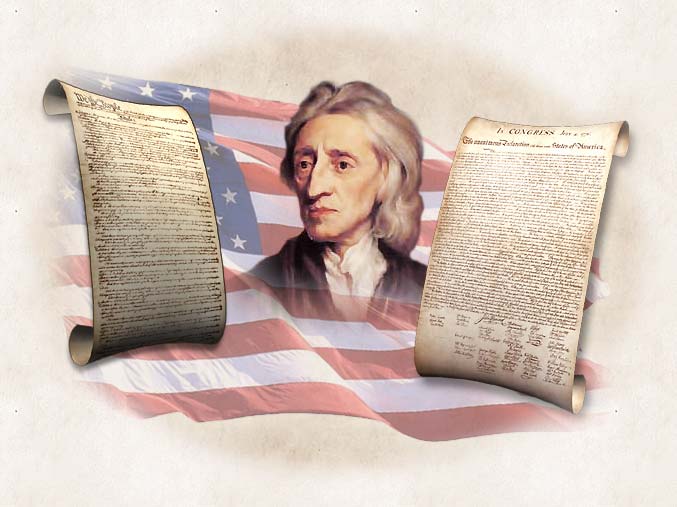United States Department of Defense
U.S. Constitution Course
The Course > Page 3
| < Previous Page | Next Page > |

Imagery:
The Declaration of Independence, the Constitution, John Locke, U.S. Flag
Narration:
The Constitution sets forth the terms of a social contract between the governed and the government.
On-Screen Text:
A Social Contract between the people and the government.
Want to Know More:
Social Contract Theory is the primary principle differentiating a republic or democracy from monarchy, aristocracy, plutocracy and dictatorship. The theory claims that peoples’ moral, economic and/or political rights and obligations are derived and dependent upon a freely-entered contract or agreement between those who form or join a society, nation or state.
The ideas of English philosopher John Locke (1632 – 1704) formed the basis for many of the concepts reflected in American law and government. His ideas serve also as justification for the colonists to resort to revolution.
More Info, John Locke:
Locke argued that people contracted with one another in order to create a particular kind of government. The justification for vesting the government with authority is the need to protect the people’s property and well-being. When protection is no longer offered or when a king becomes a tyrant and acts against the people’s interests, they may exercise the right to resist authority. Once a social contract is dissolved, the process to create a new political society can begin again.
Locke’s first major publication was A Letter Concerning Toleration. In this “letter” addressed to an anonymous “Honored Sir,” Locke argues for a new understanding of the relationship between religion and government. Locke’s work appeared amidst fears that Catholicism might be taking over England, and responds to the problem of religion and government by proposing toleration as the answer. Locke argues that more religious groups actually prevent civil unrest. Locke argues that confrontation is the result of preventing different religions from being practiced, rather than tolerating their proliferation.
The Two Treatises of Government is a work of political philosophy published in 1689. The Second Treatise is often cited as a manifesto for liberal democracy and capitalism. It begins with a depiction of the state of nature, wherein individuals are under no obligation to obey another but are themselves the judge of what the law of nature requires. It also covers conquest and slavery, property, representative government, and the right of revolution.